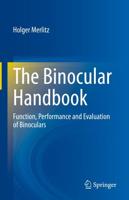Publisher's Synopsis
Organic-inorganic hybrid metal halide perovskite materials have attracted significant attention due to their advantages of low cost, tunable band gap, solution processing, high molar extinction coefficient, low exciton binding energy, and high carrier mobility. Perovskite absorber layers play a decisive role in the realization of high-power conversion efficiency in perovskite solar cells (PSCs). This book systematically and comprehensively discusses device structures, working principles, and optimization strategies of perovskite absorber layers for PSCs to help foster commercialization of these environmentally friendly power sources. It describes strategies to optimize the quality of perovskite films, including composition engineering, dimensional engineering, solvent engineering, strain engineering, additive engineering, and interface engineering.
This volume:
- Introduces crystal structures of perovskites, configurations of PSCs, and their working principles
- Discusses the modulation of perovskite compositions and dimensionality towards highly stable and efficient perovskite photovoltaics
- Details the advancements of low-dimensional PSCs including phase stability of perovskite films and strategies for modulating phases
- Summarizes progress in solvent engineering, additive engineering, and strain engineering in efficient and scalable perovskite photovoltaics
- Describes the complex crystallization dynamics of perovskites, interface engineering, and synergistic modulation of grain boundaries and interfaces in PSCs
- Highlights advances in ion migration and mitigation in halide perovskite solar cells and origins and elimination of hysteresis
This book is aimed at researchers, advanced students, and industry professionals in materials, energy, and related areas of engineering who are interested in development and commercialization of photovoltaic technologies.









